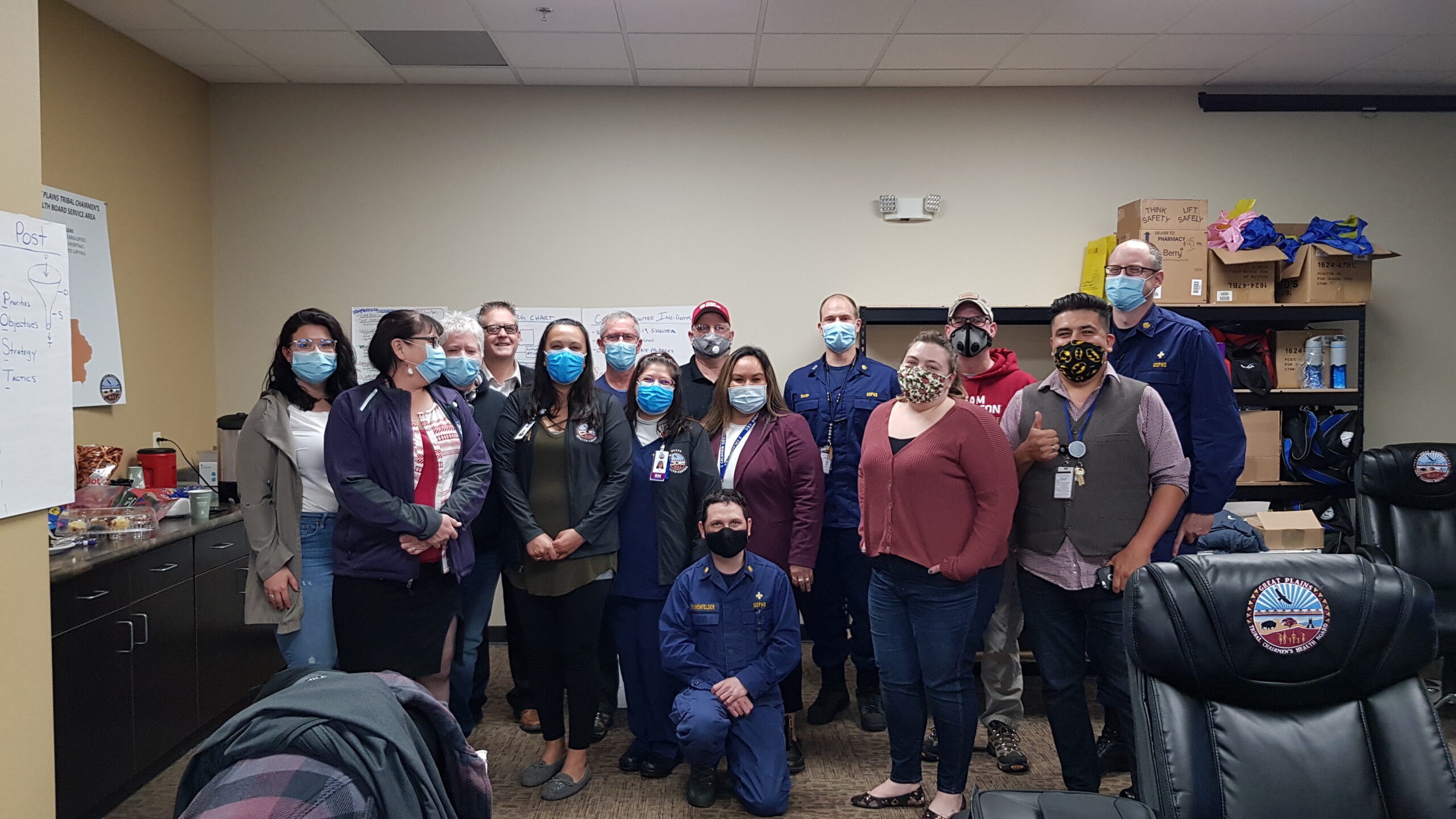Great Plains Tribal Leaders Health Board Takes on Emergency Operations

How did an organization representing 18 tribal communities in four states respond to the public health disaster that was and is COVID-19?
They combined their public health and health know-how with their relationships with tribal partners and health and human service agencies, then quickly stood up an emergency operations center (EOC).
When the Center for Disaster Philanthropy (CDP) first talked with the folks at Great Plains Tribal Leaders Health Board (GPTLHB), it was June 2020 and the pandemic was hitting the Native American population particularly hard. Federal support to tribal nations was slow and insufficient amid urgent needs. To assist the newly formed We are Warriors Emergency Operations Center and the work of GPTLHB, CDP awarded a capacity-building grant for COVID-19 response and ongoing disaster-related leadership.
“Our ultimate goal is to improve the ability of tribal nations to respond to large-scale disasters. The EOC expands the capacity of tribal nations to meet the needs of their communities during a disaster. Also, we improve our ability to aid them in these efforts,” said Jerilyn Church, CEO GPTLHB.
An early best practice was hiring from within, as training emergency management and logistics to existing staff was more successful than hiring someone with emergency experience but a lack of Native cultural understanding.
“It really is a team effort. We have individuals who may work as the Logistic Chief in the morning then turn around to return to their job in the clinic in the afternoon. We have staff that may typically spend their time at a desk, who are providing services to those in need within the community,” said Annie Lloyd, an emergency management consultant to the health board.
The We Are Warriors EOC serves as a regional hub assisting reservation-based centers with communication, resource, and coordination support and training. Throughout the COVID-19 pandemic, it has worked closely with tribal emergency managers daily. This vital relationship has helped to deliver life-saving resources to those in need.
Some of the many achievements of GPTLHB and We are Warriors include:
- Assisting with food acquisition & distribution.
- Acquiring and distributing PPP.
- Standing up isolation centers.
- Improved coordination and information sharing.
- Advocacy and education to non-tribal organizations and individuals.
- Handling and distributing millions of dollars of donated food and supplies.
- Hosting of weekly tribal emergency operations call.
- Certified Emergency Response Team (CERT) Train the Trainer achieved by EOC staff.
- Providing technical assistance to tribes and tribal emergency management.
- Hosting an Emergency Operations Center conference.
The EOC conference held in March reached 130 individuals from tribal, state and federal government, disaster organizations, and nonprofits.
“The conference explored the experiences and lessons learned by policy experts from across the region with the goal to find ways to better respond to emergencies in tribal communities. This event was a major success and featured experts on everything from operating a tribally focused Resource Supply Chain, Indigenous Food Sovereignty initiatives, and even how behavioral health issues relate to preparedness,” said We Are Warriors EOC Director Brenna Lanoue. “Sometimes we forget how robust the network of compassionate, dedicated and committed individuals in our area is; this conference reminded me that the helpers are everywhere and doing amazing work.”
Organizing and leading the community helpers is imperative. The leadership provided by Great Plains and the We are Warriors EOC helped during these challenging times, and this work will help prepare for and respond to future disasters.
Hecel Oyate Kin Nip Kte
“So that the people may live”